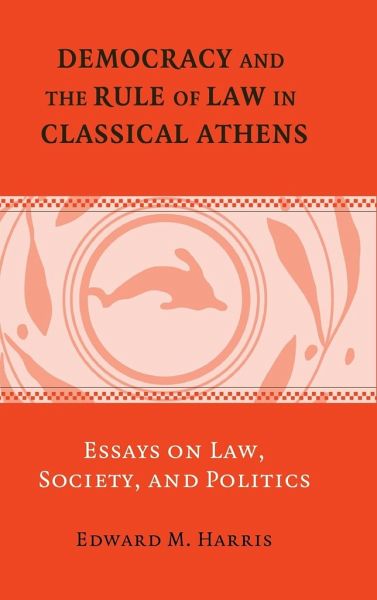
Democracy and the Rule of Law in Classical Athens

PAYBACK Punkte
71 °P sammeln!
This volume brings together essays on Athenian law by Edward M. Harris, who challenges much of the recent scholarship on this topic. Presenting a balanced analysis of the legal system in ancient Athens, Harris stresses the importance of substantive issues and their contribution to our understanding of different types of legal procedures. Collectively, the essays in this volume demonstrate the relationship between law and politics, the nature of the economy, the position of women, and the role of the legal system in Athenian society.














